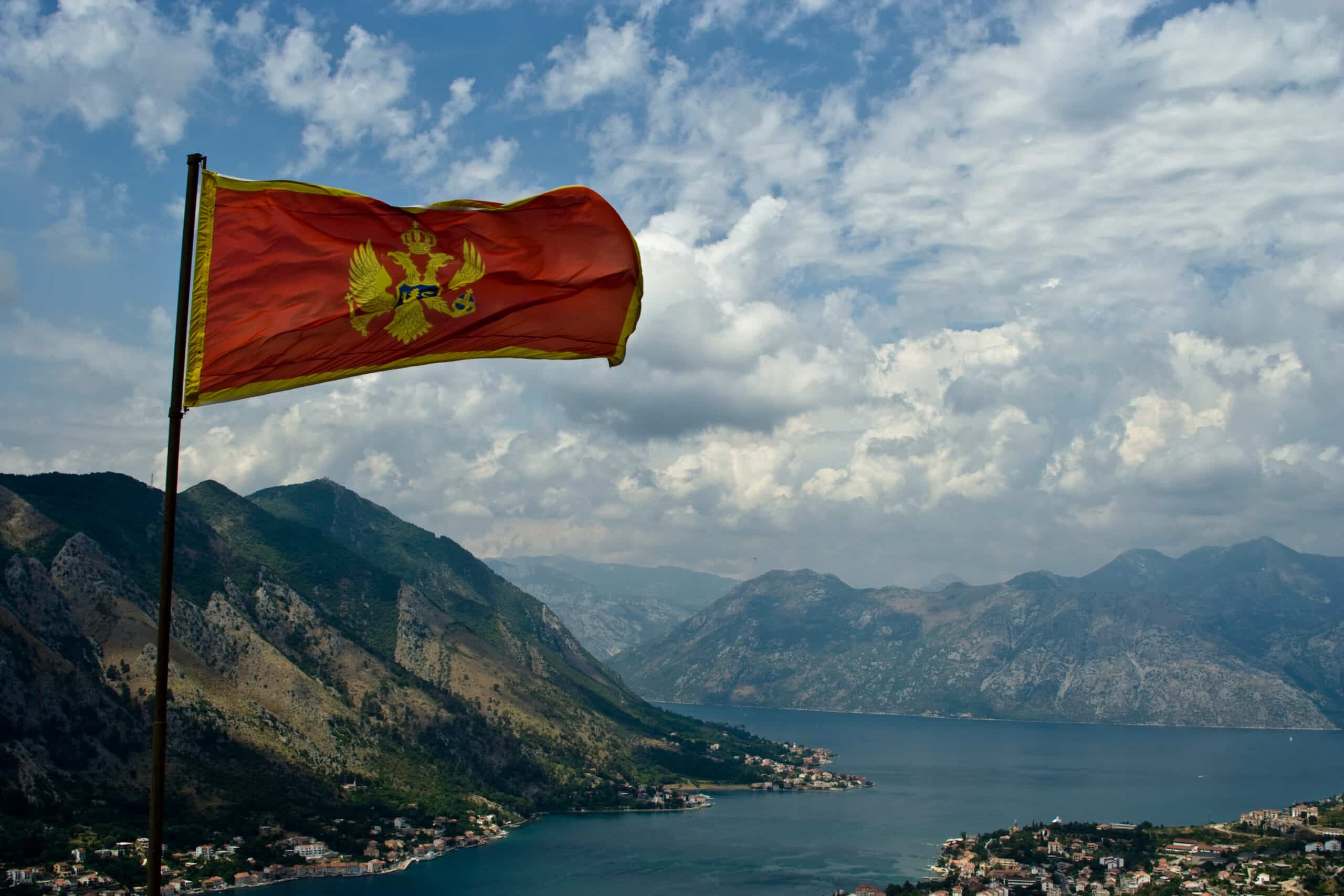Photo: Flag of Montenegro over Kotor Bay – Flickr
On Sunday, September 29, local elections were held in Montenegro in the municipalities Podgorica and Kotor. In both municipalities, the Democratic Party of Socialists (DPS) became the biggest party. What does this mean for the political scene in Montenegro? And how well did the social democratic parties really do?
Results in Podgorica and Kotor
The elections in Podgorica were the result of a crisis in the ruling Europe Now! Party (PES). This party, together with Democratic Montenegro (DCG) and the Socialist People’s Party (SNP), leads a minority government which is supported by the pro-Serbian For the Future of Montenegro (ZBCG). Earlier this year, both the current president of Montenegro and a section of the party left the PES. In the elections in Podgorica, a new party formed by the president and dissidents of the PES, now competed against their former party. The main question during this election was, therefore, whether the governing coalition of the PES, DCG, SNP, and ZBCG would retain their majority.
This did not happen. The PES and DCG together only obtained 14 seats, while in the last election the PES had 13 seats and a coalition around the DCG 6 seats. The ZBCG and SNP together won 13 seats, 2 more than the last elections. The dissidents from the PES obtained 6 seats in total, meaning that the governing parties are now 3 seats short of a majority.
The clear winner, however, was the DPS, who won the elections with 17 seats. They also called on the government to resign, as the results of this election would mean that a majority of the Montenegrin people no longer supported the governing parties. Two other social democratic parties, the Social Democratic Party (SDP) and the Social Democrats (SD), got 3 seats together with the Liberal Party (LP).
In Kotor the DPS also got the most votes, but it got the same amount of seats as the PES and DCG, both obtaining 10 seats. However, in comparison to the previous local elections, the DPS lost 2 seats, while the PES and DCG got 1 seat more than a similar coalition that participated last time.
Performance of the Social Democrats
The campaign of the coalition with the SDP, SD and LP was focused around a progressive and pro-European agenda. Montenegro currently has a big chance of becoming a member of the EU soon, but the current right-wing government, which includes pro-Serbian and pro-Russian parties, will likely damage these chances. For this reason, it was very important for this coalition to warn for the influence of Serbia and Russia and emphasize a pro-European course.
There have, for example, also been reports that people with a double nationality have been brought from Serbia to vote for Serbian parties in Montenegro. This is exemplary of the fact that Serbia has continuously attempted to influence the elections in Montenegro and to deny its independence. According to the National Endowment for Democracy, Serbia also does this in traditional and social media, in order to influence the voting behavior of especially young voters.
The SDP, SD, and LP coalition sees this as a big problem, and, for this reason, attempted to attract more young voters. On of their main issues is good education, which should connect very well to young voters and they have also been endorsed by several local university professors. Moreover, they strongly advocated for women’s rights and the rights of LGBTQ+ people.
Unfortunately, the SDP, SD, and LP did not see an increase in their votes in Podgorica and Kotor. In Podgorica they obtained 3 seats, while they got 2 seats in Kotor. At the last election, in 2022, they participated in the local elections together with the DPS and obtained 24 seats. This time, the coalition and the DPS together only got 21 seats. Thus, while the DPS became the biggest part in Podgorica, in total the social democrats lost 3 seats.
In Kotor the same is true. This time, the SDP, SD, and LP obtained 1 seat less than at the previous election in 2020, while the DPS had 2 seats less.
Political Consequences
After the election results came in, the DPS immediately announced that the opposition had overwhelmingly won the local elections and that the current government should step down. It is true that the governmental parties did not win a majority and that the DPS became the biggest party, but they did not even get close to the numbers with which they used to win in the past.
Moreover, in Podgorica, the governmental parties primarily seem to have lost as a result of internal unrest. The dissidents from the PES obtained 6 seats, which would probably have gone to the PES if nothing had happened. This means that voters have not necessarily shifted their allegiances and that the DPS has not regained the trust of voters, nor has the progressive coalition of SDP, SD, and LP.
For this reason, it is hard to say what the consequences of these elections will be. The governmental parties did not lose very badly, nor did they win. The same is true for the DPS who won the elections, but still lost in comparison to the last elections. It remains unsure whether this government will be able to remain in power and whether the DSP will at some point manage to replace them.
Written by Guido Boven



